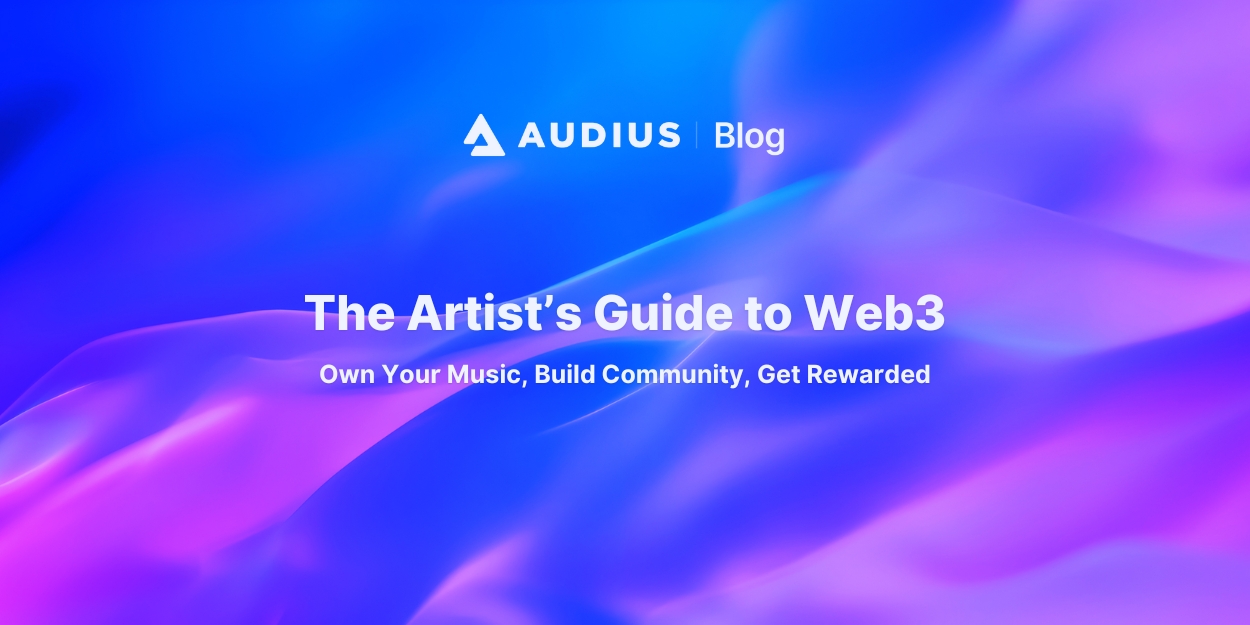
Web3 tools are changing the music business; giving power back to artists through decentralization, ownership, and community. Here’s all you need to know to make the most of it. The way music is shared and monetized is changing and it’s shifting power back to you, the artist.
Web3 is more than a buzzword. It's a new approach to the internet that gives you more control over your music, more direct access to your fans, and more opportunities to get paid fairly for your work. But if you’ve ever asked “What is Web3?” or “How do I even start?,” this guide is for you.
We’ll walk you through what Web3 means for artists, the essential tools to know, and how to get started using them on Audius.
Let’s start with the elephant in the room, the question everyone is asking: what is Web3?
In simplest terms, Web3 is nothing to be scared of and is in fact, the next evolution of the internet built on decentralized networks instead of centralized companies. In Web3, ownership and control shift to the users and creators rather than a single company having a monopoly.
What do we mean when we say decentralized networks? This means Web3 is powered by blockchain technology, a transparent, secure system that records transactions that is run by thousands of individual node operators around the world.
But don’t worry, there’s no need to understand the blockchain behind Web3 to benefit from what it enables: fairer, more open systems that work for creators. Think about the internet, you don’t need to know how it works to use it everyday!
Nonetheless, this means, unlike uploading your music to a traditional platforms that keep the money and the data of your precious work, a Web3-native platform (like Audius) allows you to:
So what are some examples of these Web3 tools that everyone keeps talking about? Read on!
An increasing number of independent artists, labels and users are looking for alternatives to the broken streaming and sharing models currently available. However, many that you know and love are already using Web3 tools on Audius to gain traction, build community, and take control.
These are the essential building blocks of the Web3 world, which you may encounter and can use as an artist to build your own world around your music.
Unlike traditional platforms, decentralized music platforms like Audius allow you to upload your music, grow your audience, and earn rewards while keeping all the control.
This works because decentralization inherently means that there’s no middleman taking a huge cut of your profits and content. The network the platform is built on is run through dispersed node operators.
This means if the company of Audius shut down, all engines would still be firing thanks to the ecosystem operators and the decentralized governance structures.
What does this allow for practically speaking?
Audius recently surpassed a huge milestone of 250 million streams and has expanded its catalog with entities such as Downtown Music and the International Copyright Enterprise to bring even more music on chain. So as we see it: this is only the beginning!
If you’re interested in deeper dives on how Audius stacks up to some traditional platforms check out our Audius vs Spotify and Audius vs Soundcloud guides.
To use most Web3 services, at some point you’ll need a crypto wallet, but don’t let those words fool you into thinking some sort of scam is at play.
In fact, crypto wallets are helpful storages of digital value that hold tokens or other digital assets native to the Web3 platforms you’re using, like $AUDIO, the native token of Audius.
While there are hundreds of crypto wallets available, such as MetaMask (great for Ethereum-based apps) or Phantom (for Solana), on Audius, a basic crypto wallet is built-into your account to hold all of your $AUDIO in one place and can be directly withdrawn to your bank account.
Remember that when you hear Web3, it isn’t just a fad or passing trend. It’s a bigger shift in the digital world, which will help reshape how artists connect with fans, own their work, and build communities.
With platforms like Audius that make joining in on this shift seamless, you’ll already have the tools you need to start taking control of your music on your own terms.
So, are you ready to take the first step?
Let's create the future of music, together.